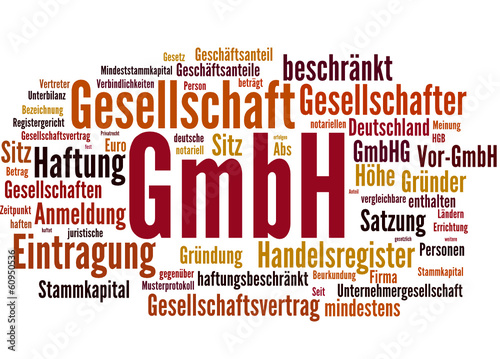Answering The Most Common Questions About Setting Up A GmbH In Germany
It is well known fact that the GmbH is one of the most popular business structures in Germany and is preferred by both local and foreign entrepreneurs. Even though a GmbH is subjected to the same registration principles as other type of businesses, it offers relatively greater flexibility and lesser obligations as compared to other business formats. However, the process of setting up a GmbH in Germany might still seem somewhat overwhelming for inexperienced investors. Given below are the answers to some of the most common questions that such investors often struggle with while trying to establish such a business in Germany.
What Is The Minimum Share Capital Of A GmbH?
The investors can start a GmbH in Germany with a minimum share capital of € 25,000.00, which can be deposited both in cash and kind. An exclusive aspect of this type of company is that even though the capital is divided into shares, the shares are not allowed to be traded on the stock market and neither can they be transferred. It is mandatory to deposit at least 25% of the cash contributions of the capital and 100% of the non-cash contributions before the registration of the GmbH.
How Many Shareholders Are Required For Establishing A GmbH?
GmbH offer great flexibility in terms of the number of shareholders required for setting it up. As such setting up a company in Germany by only a single shareholder or multiple shareholders is not only possible but legally allowed. In addition, the government does not place any restrictions on the nationality of the shareholders and they also do not need to be the residents of Germany. The liability of the shareholders with respect to the debts and other obligations of the company are decided on the basis of their level of contribution in the share capital. The shareholders can exist as individuals, other organizations or even partnerships.

What Are The Finer Aspects Of The Management Structure Of GmbH?
The management of a GmbH in Germany comprises of managing directors and they are the ones to represent the company on all business matters. These managing directors are generally appointed by the shareholders of the company and the shareholders can themselves hold this position, although it is not mandatory. In case the GmbH company goes on to employ more than 500 employees, it is required to set up a Supervisory Board to monitor the overall functioning.
How Is A GmbH Verified?
It is mandatory for all GmbH companies to maintain proper financial records as well as the details of all commercial transactions. It is also mandatory for these companies to submit their annual financial statements, their balance sheet as well as their income statement for verification purposes.
What Are The Different Kinds Of Taxes Applicable To A GmbH?
The taxation matters in Germany are handled by the Federal Central Taxation Office, the Ministry of Finance of the German States or the Federal Ministry of Finance. According to the directive of these tax authorities, a GmbH has to pay the below described corporate taxes.
Corporate Business Tax : The tax is charged at an effective rate ranging between 30 and 33% and comprises the standard rate along with solidarity surcharge etc.
Taxed Business Income : The tax includes the usual income from trade and capital gains.
Deductions : The GmbH companies are allowed to make deduction for specific expenses that form an integral part of the business activities. In some such cases only a limited deduction can be made by the companies, such as in case of gifts and donations.
Value Added Tax : This is a standard tax charged on Germany at the rate of 19%, although reduced rates are applicable for businesses providing basic services, such as foodstuffs, books, magazines and accommodation etc.

Comments
Post a Comment